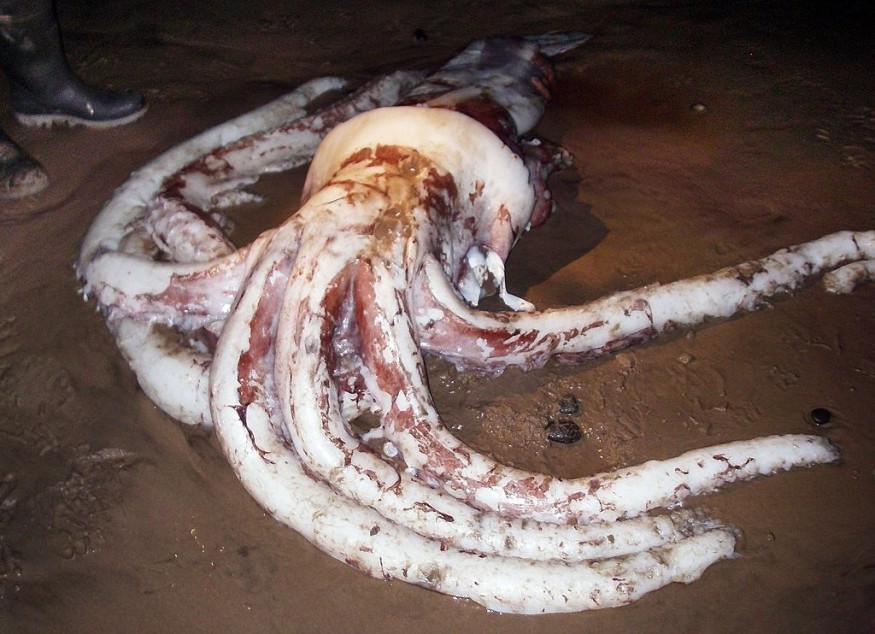A giant squid has washed up ashore recently along the shore of the Kommetjie Beach in Cape Town, South Africa.
Beachgoers reportedly took pictures and took to social media of the squid, whose stranding still remains a mystery.
Squid Carcass

In a Twitter post by user Mathe Wegqirha (@NcubukeziM) on Saturday, April 30, four attached pictures show a white-colored giant squid is stranded lifeless on the Cape Town beach.
This giant Squid washed up on the Beach at Kommetjie during the night .. Thats CapeTown for you pic.twitter.com/73szX89XFF
— Ubhuti Wabantu (@NcubukeziM) April 30, 2022
The massive squid reportedly washed up on the beach overnight from Friday, April 29, to Saturday morning.
Local authorities were then alerted after it was first discovered.
Since then, a local museum in Cape Town has collected the squid carcass, as per the online news platform The South African.
Potential Cause of Death
The Cape Town-based media outlet reports that some first-hand accounts from witnesses in the area indicate that the squid was hit by an engine propeller.
It also cited some social media posts of residents in the area that they were not aware that such large creatures exist off the coast of Kommetjie Beach.
On the other hand, it was not immediately revealed if a comprehensive investigation into the incident has been launched by local officials, especially if there is foul play.
Death due to a predator attack was not mentioned to have been ruled out yet.
However, emerging reports alleged that some fishermen have managed to grab the beak, eyes, and tentacles of the squid, says Jon Friedman, spokesperson at the Cape of Good Hope SPCA, whose wildlife team was called out, according to News24, as cited by local news Cape Town ETC.
After the squid carcass was almost depleted, its remaining parts were thrown back into the sea.
However, the marine animal's tissues were handed over to the Iziko Museum for DNA analysis.
Related Incident in Japan
The giant squid stranding in Cape Town occurred more than a week after another marine invertebrate was also seen adrift on a beach in Japan on April 20.
It was first reported by a local who saw the squid washed up along the Ugu beach in Obama, Fukui Prefecture.
The local authorities in Obama said the squid was still alive when it was located. In addition, the officials also treated the incident as a rare occurrence.
Due to the collective narratives from the recent stranding incidents, confirms not only the continued existence of giant squids but also their presence worldwide.
What are Giant Squids?
Scientists are still baffled behind the mystery surrounding the giant squid (Architeuthis dux), despite being the largest invertebrate on the planet, as per National Geographic.
These sea creatures have a carnivorous diet and can grow up to 33 feet, weigh 440 pounds, and are compared to the size of a bus.
In the past, the largest giant squid to have been measured was 59 feet in length and weighed almost a ton.
Prior to its well-documented discovery, giant squids resided in the imaginations of both laymen and scientists.
Until 2004, researchers from Japan took the first photos of a live giant squid. In 2006, the National Science Museum in Japan caught a live female giant squid the size of 24 feet.
Related Article: A Giant Squid With a Size of 9-Ft Found in the Seas of Japan
© 2025 NatureWorldNews.com All rights reserved. Do not reproduce without permission.





